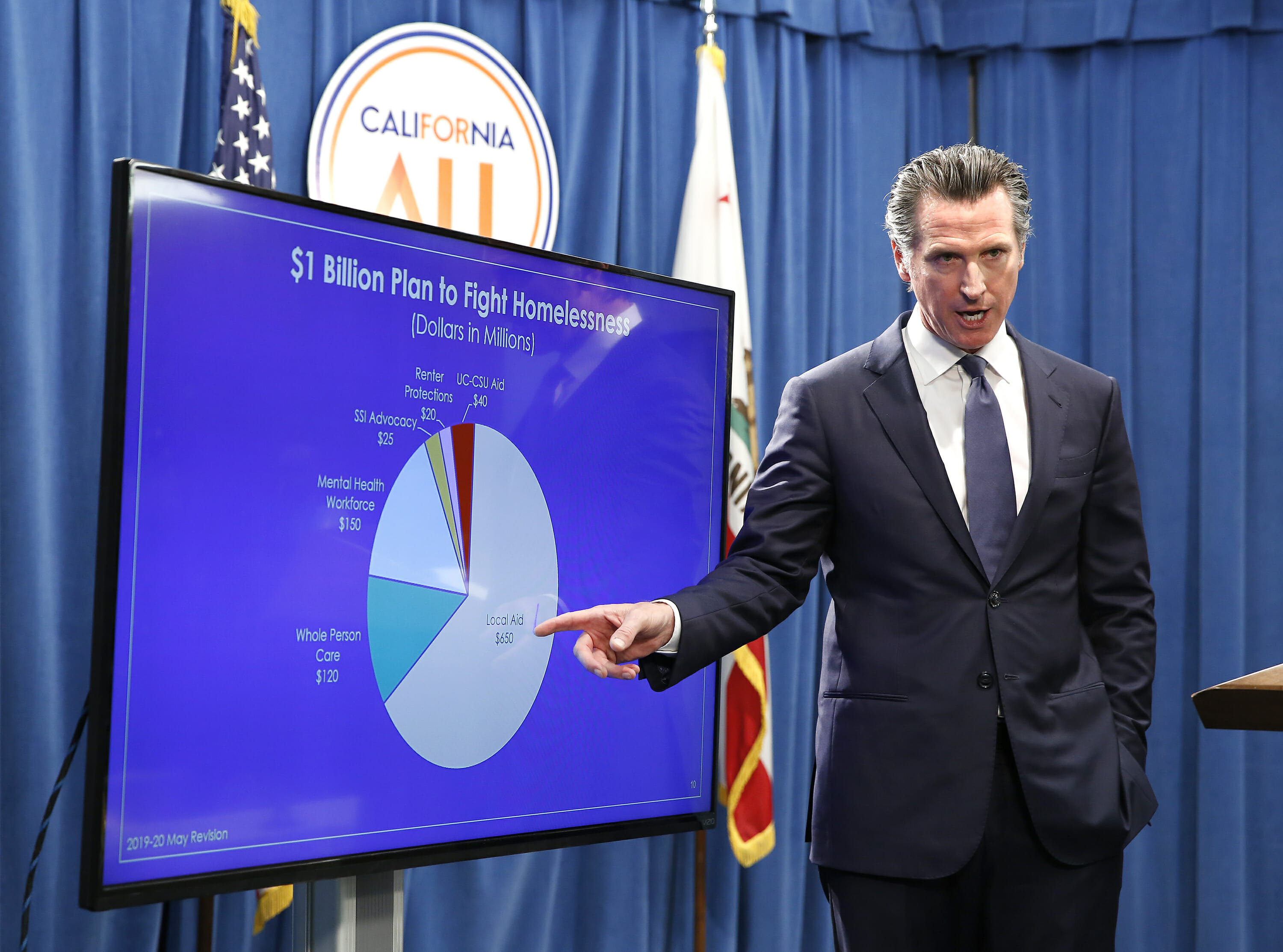
California lawmakers poised to approve $214.8 billion budget
SACRAMENTO, Calif. (AP) — A $214.8 billion budget approved Thursday by California lawmakers would upgrade the state’s aging 911 system following the most devastating wildfire season in state history and help middle class families pay their monthly health insurance premiums.
To fund those changes, however, lawmakers want to impose a new monthly fee on phone bills and tax people who refuse to buy private health insurance, even though the state has a projected $21.5 billion surplus, the largest in at least 20 years.
Republican Assemblyman Jay Obernolte, vice chairman of the Assembly Budget Committee, said it’s “unconscionable” to ask taxpayers to fund the 911 upgrades when there is such a large surplus.
Democrats, who have super majorities in both houses of the Legislature, counter that they don’t want to use the surplus to pay for ongoing expenses, something previous Legislatures were eager to do and led to multi-billion dollar budget deficits when the economy soured.
“There is no other state in this union that funds a 911 upgrade with one-time funds,” said state Sen. Mike McGuire, a Democrat representing Healdsburg.
The massive spending plan, totaling more than 900 pages, directs the spending of tax dollars in the country’s most populous state.
Lawmakers must still pass more than a dozen other bills to implement the budget. The trailer bills could contain important details, such as how to implement the new 911 fee.
California’s 911 system is based on technology from the 1970s. It can handle phone calls and some data but not much else. State officials want to replace it with a system that incorporates text messages, videos and photos.
California now pays for the system with a fee on phone calls. But the fund has been steadily losing money as more people send text messages instead.
Some lawmakers want to replace the call fee with a flat fee on all phone bills. The plan would authorize the Office of Emergency Services to impose a fee of as much as 80 cents a month, based on the number of phones used in the state. State officials expect the fee to be about 34 cents a month.
“We tried very much to make sure that this budget capitalizes on the fact that we have a strong reserve and we have resources. But that doesn’t mean … that we spend it all,” said Senate President Pro Tempore Toni Atkins, a Democrat from San Diego. “It’s a fee connected to a real issue.”
The spending plan is the first under Democratic Gov. Gavin Newsom, who has 12 days to sign it or veto parts of it.
It would also make California the first state to help people who earn between four and six times the federal poverty level pay their monthly health insurance premiums.
That means families of four who earn as much as $150,500 a year would be eligible.
Lawmakers plan to pay for part of that by taxing people who refuse to purchase private health insurance. That tax had been law nationwide under former Democratic President Barack Obama’s health care law, but Republicans in Congress eliminated the penalty as part of a 2017 overhaul to the federal tax code.
The proposal has angered some Republicans, who note the budget would also make some low-income adults living in the country illegally eligible for taxpayer-funded health insurance. Only adults between 19 and 25 would be eligible.
“The biggest increase in this budget is for people who aren’t even citizens,” said Assemblyman Devon Mathis, a Republican who represents Porterville.
Democrats say the two health care proposals are designed to make sure everyone in California has health insurance.
“We want to make sure California is becoming healthier,” said Assemblyman Phil Ting, a Democrat from San Francisco and chairman of the Assembly Budget Committee.
The budget proposal also increases spending for public education, housing and programs to combat homelessness. It would bring state reserves to $19.4 billion, or about half of what the nonpartisan Legislative Analyst’s Office says is needed to weather the next recession.
“As our economy has been doing great, we know that at some point soon a recession will be coming and we need to make sure we are saving that money for a rainy day,” Ting said.
___
Associated Press writer Andrew Oxford contributed.
The Western Journal has not reviewed this Associated Press story prior to publication. Therefore, it may contain editorial bias or may in some other way not meet our normal editorial standards. It is provided to our readers as a service from The Western Journal.
Truth and Accuracy
We are committed to truth and accuracy in all of our journalism. Read our editorial standards.
Advertise with The Western Journal and reach millions of highly engaged readers, while supporting our work. Advertise Today.












